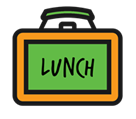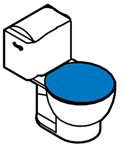As your child grows it is really important that they begin to learn the skills they will need as they become a bit more independent. To become independent, your child needs to be confident in their own abilities. If they are not confident in their own skills, they will remain reliant on the support of parents, carers or other adults, or their more confident friends or siblings. Every child is different, and will develop these skills at different rates.
Developing these independence skills will also really help them when they start school.
Following Instructions
Knowing how to listen and follow instructions is an important skill, and one that will help children throughout life. Have routines and boundaries at home so that your child is used to knowing what will happen next and what is expected of them.
You can help your child practice through play. Children learn more easily when they are enjoying themselves.
You could try:
Keep instructions simple and not too long. It will take time for your child to remember more than a couple of things at a time. Your child will feel proud when they get it right.
Feeding Themselves
Learning to sit still at mealtimes is an important skill. It is good for building concentration and social skills.
You can make this a good family habit by eating together as often as you can. It is great if you have a table to sit at together. If you don’t have a table you can still have mealtime rules – where everyone sits together and the TV and all screens are off. This gives you all the space to talk and listen. It also gives your child the chance to watch and learn from you how to use a knife and fork.
At about this age lots of children will manage to eat most things with cutlery. Your child is likely to still need a hand with difficult cutting up until they are around seven. Using a knife and fork will help their hand eye co-ordination develop. They need this for skills like handwriting too, so it is important they get plenty of practice.
Getting Ready To Start School
If your child will be taking a lunch box to school, practice opening and shutting it together so they are able to get their lunch out at meal times.
 Think about the food you put in the lunch box.
Think about the food you put in the lunch box.
Using the Toilet
Most children will be toilet trained by the time they are 3 - 4 years old. Don’t be surprised if they have the odd accident or set back (regression), especially when new things are happening – like starting school, changes in the family or they are just really concentrating on something else!
You can help your child become more confident at going to the toilet on their own. Get them to practice the stages of going to the loo.
 Closing the door.
Closing the door.It can help to have a routine around going to the toilet at home. Ask them to go to the toilet after each meal, and before you go out. Encourage them to try to do a poo after breakfast.
Getting Ready To Start School
If your child will soon be starting school soon, when you visit ask to see where the toilets are. Then you can see what they are like and talk about them at home. Find out if your child has to;
Getting Dressed
For children being able to dress themselves is an important step towards independence. It grows their confidence and self esteem. It helps them develop important gross motor skills - big movements; like standing on one leg, and fine motor skills - small movements; like buttoning and zipping. These are important for all sorts of activities and learning, both at home and at school.
Children will want to try and do things for themselves. You have probably watched your child work hard to learn new skills. They often do not want your help!! Children can be slow at first. It can take more time to let them do things independently to begin with.
It can be hard to sit back as a parent when you know you could do it more quickly.
You can help by:
Activities to help:
Washing Hands
We all know how important hand washing is. The coronavirus outbreak means that we are more aware that we should all wash our hands regularly and for 20 seconds at a time.
Children learn a lot from watching you. They will need the chance to practice and will need reminding what to do, and when, to begin with. Your child should be washing their hands with soap after using the toilet, playing outside, touching animals and before every meal. This stops the catching and spreading of the germs that cause illnesses.
Encourage your child by:
Practice handwashing with your child. Make it a house rule that everyone’s hands are washed before meals and after using the toilet and when you get home after being out. It is a very important habit for the whole family.
You can contact the Healthy Child Programme by calling Just One Number on 0300 300 0123 or texting Parentline on 07520 631590. Our opening hours are 8am-6pm Monday-Friday (excluding bank holidays) and 9am-1pm on Saturdays.
If you are 11-19 you can text ChatHealth on 07480 635060 for confidential advice from one of our team.
To speak to other Norfolk parents and carers, you can join our online community forum below.